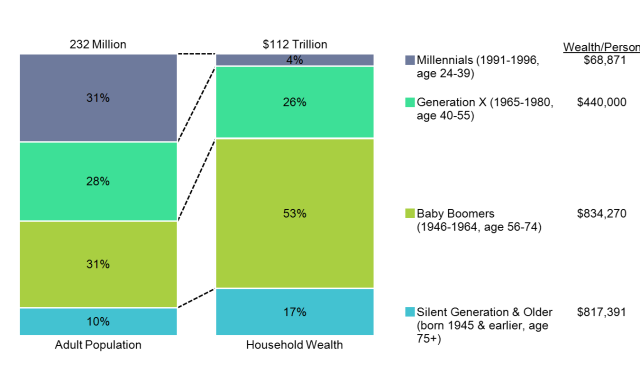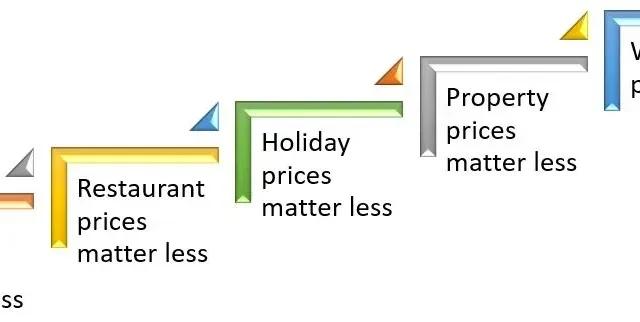Financial habits that kill wealth can quietly sabotage your financial aspirations, often without you even realizing it. Many individuals fall victim to common money mistakes that not only hinder wealth accumulation but also lead to long-term financial blunders. From mixing insurance with investments to overspending on frivolous upgrades, these financial pitfalls perpetuate cycles of debt and stunted growth. Sounds familiar? You’re not alone; countless people struggle with budgeting tips that could save them from devastating investment mistakes. Understanding and correcting these habits is the first step towards achieving true financial freedom and securing your wealth for the future.
Distinguishing detrimental financial behaviors is crucial for anyone aiming to build a steady financial foundation. Often referred to as financial missteps or traps, these habits can lead to significant setbacks in wealth-building endeavors. Whether it’s through excessive reliance on credit cards or a failure to invest wisely, individuals unknowingly engage in patterns that work against their financial stability. It’s vital to recognize these behaviors as part of a larger conversation around responsible money management. Armed with the right strategies and insights, anyone can transform their financial trajectory and ultimately secure their wealth.
Common Financial Mistakes That Kill Wealth
Many individuals unknowingly engage in financial habits that can significantly derail their wealth accumulation efforts. One major mistake is the inclination to mix insurance with investment. Products like whole life and endowment plans come with the allure of ‘safety’ and ‘returns,’ but they fail to deliver effectively on both fronts. Instead, it’s wiser to opt for a pure term insurance policy for protecting loved ones, while channeling funds into mutual funds dedicated solely to wealth growth. This simple separation can lead to better financial outcomes and a more robust portfolio.
Another prevalent pitfall is co-signing loans for friends or family. Although it may seem like a generous action, it can have dire consequences for your own financial health. Should the primary borrower miss a payment, your credit score will also be impacted, leading to higher future borrowing costs. This habit not only places your finances at risk but can also strain personal relationships, as financial responsibilities often bring about stress and misunderstanding.
The Debt Cycle: Understanding Its Impact on Wealth
Overreliance on credit cards and loans can be a silent killer of wealth. For instance, only paying the minimum due on credit cards can lead to a significant increase in debt due to compounding interest rates. A balance of ₹50,000 could escalate to over a lakh in just two years if the 36% interest rate applies. This situation is exacerbated for many, who find themselves cash-poor despite earning substantial salaries because they tend to spend all their income. It’s essential to break this cycle and seek budgeting tips that prioritize savings and responsible spending.
Creating a budget that emphasizes the reduction of debt and promotes financial literacy is crucial in combating this issue. One way to do this is by setting up automatic payments for loans and credit cards—ensuring that you’re not just meeting the minimum requirements but actively reducing your principal. Additionally, learning about the consequences of missed payments is vital, as just one slip can diminish your credit score and entrench you deeper into financial instability.
Lifestyle Inflation: How It Affects Wealth Accumulation
As people’s incomes rise, there’s a natural tendency to elevate their lifestyle—a phenomenon known as lifestyle inflation. This impulse to spend more can severely impact wealth accumulation. A common scenario is when an individual earns ₹2 lakh a month but also spends ₹2 lakh, leaving them with zero savings. It’s critical to understand that accumulating wealth isn’t just about earning more; it’s also about maintaining a lifestyle that allows for saving and investing. To counteract lifestyle inflation, one must develop discipline in financial habits, ensuring expenses do not proportionately increase with income.
To manage lifestyle inflation effectively, it’s advisable to implement a budgeting strategy that limits discretionary spending. One effective approach is the popular 50-30-20 rule, where 50% of income goes to needs, 30% to wants, and 20% is allocated to savings. By adhering to such a framework, individuals can safeguard against overspending while promoting a culture of savings and investment, ultimately aiding long-term wealth accumulation.
Investment Mistakes: The Consequences of Uninformed Choices
Investing in areas that one does not fully understand can lead to significant financial losses. Popular trends such as cryptocurrencies or NFTs may promise high returns but can also carry substantial risk for unwary investors. If you cannot explain how an investment generates profit in simple terms, you are likely making a gamble rather than a sound investment. To mitigate such investment mistakes, individuals should educate themselves on various asset classes and focus on opportunities that align with their risk tolerance and financial goals.
Moreover, diversification is key in building a resilient investment portfolio. By spreading investments across different asset classes—such as stocks, bonds, and real estate—one can reduce overall risk and enhance the potential for returns. This strategy not only acts as a buffer against market volatility but also allows for steady growth in wealth over time. Developing a solid understanding of market dynamics and asset allocation strategies is essential for anyone serious about building and sustaining wealth.
Avoiding High-Interest Loans and Their Impact on Finances
Payday or instant loans are another significant trap many people fall into, especially when facing urgent financial needs. These loans often promise quick cash but come with exorbitant fees and interest rates that can reach as high as 40-50% annually. The appeal of immediate relief can lead to long-term financial struggles, making it critical to establish a costs-first approach when considering any loan. Instead of seeking quick fixes, individuals should take a step back to assess their finances and prioritize building a practical budget that prevents the need for such predatory borrowing.
Building a solid emergency fund is one effective strategy to avoid the pitfalls of high-interest loans. Financial experts recommend saving at least six months’ worth of expenses as a safety net. This fund provides peace of mind and can serve as a financial buffer during unforeseen circumstances, reducing reliance on costly loans. By implementing disciplined budgeting and saving practices, individuals can cultivate resilience against financial emergencies, thus protecting their long-term wealth.
The Importance of Financial Goals in Wealth Management
Defining clear financial goals is vital for effective wealth management. Goals can range from short-term objectives, such as saving for a vacation, to long-term aspirations like retirement planning. Setting these goals allows individuals to create a clearer financial roadmap, enabling them to allocate their resources efficiently and track their progress over time. Furthermore, having specific targets in mind can help individuals stay motivated and disciplined in their saving and investing practices.
Additionally, it’s vital to reassess and adjust financial goals periodically as circumstances and priorities change over time. Flexibility in goal setting can lead to better wealth management as it accounts for income changes, emerging expenses, or shifting aspirations. Seeking the guidance of a qualified financial advisor can also provide invaluable insights and assist in the creation of a well-rounded financial strategy that aligns with one’s goals, ultimately fostering a healthier relationship with money.
The Role of Financial Education in Wealth Building
Financial education plays a crucial role in preventing common money mistakes and enhancing wealth-building efforts. Many individuals lack a fundamental understanding of financial concepts such as interest rates, compounding, and investment diversification. Without this knowledge, it becomes easy to fall into traps that jeopardize financial stability. Fostering an understanding of key financial principles can empower individuals to make informed decisions that promote wealth accumulation rather than hinder it.
To further support financial literacy, individuals should seek out resources such as books, workshops, and online courses focused on personal finance. Engaging with a community or consultant to discuss financial strategies can also enhance one’s knowledge base. The more educated an individual becomes about financial matters, the better equipped they are to navigate complex situations and avoid financial blunders that could significantly affect their wealth.
Effective Budgeting Tips to Enhance Financial Health
Effective budgeting is a cornerstone of sound financial management and a powerful tool in wealth accumulation. Implementing a budget helps individuals track their income, expenses, and savings goals effectively. Many people can benefit from the 50-30-20 rule, where 50% of income goes to needs, 30% to wants, and 20% to savings. This method can simplify budgeting, ensuring that spending aligns with long-term financial goals while also promoting discipline in financial habits.
Moreover, regular reviews of one’s budget can provide insights into spending patterns, enabling adjustments to be made proactively. For instance, if one notices excessive spending in discretionary categories, they can take prompt action to cut back, allowing for greater savings. By maintaining a disciplined approach to budgeting, individuals can create a pathway to financial prosperity, ensuring that wealth accumulation remains a tangible goal rather than an elusive dream.
Seek Professional Advice: A Pathway to Sustainable Wealth
Consulting with a financial advisor can significantly enhance your understanding of wealth building and help mitigate risks common among investors. Professionals can offer tailored advice that aligns with individual financial circumstances, guiding clients towards suitable investment opportunities and strategies that fit their risk appetite. By leveraging the expertise of a qualified financial advisor, individuals can feel more secure in their investment choices, leading to more informed decisions that support long-term wealth accumulation.
Additionally, a financial expert can assist in setting realistic financial goals and creating actionable plans to achieve them. They can provide guidance on crucial matters such as debt management, tax optimization, and estate planning. Seeking professional advice not only streamlines the wealth-building process but also fosters a deeper understanding of financial markets, ultimately contributing to desired financial outcomes.
Frequently Asked Questions
What are common financial habits that kill wealth accumulation?
Common financial habits that kill wealth accumulation include mixing insurance with investments, co-signing loans, and only paying the minimum due on credit cards. These practices can create high-interest debt and limit your ability to save and grow your wealth.
How does spending more money due to lifestyle creep affect financial health?
Spending more as you earn more, also known as lifestyle creep, can severely affect financial health by consuming resources that could otherwise be saved or invested. It leads to living paycheck to paycheck, making it harder to accumulate wealth.
What financial blunders should I avoid to protect my investments?
To protect your investments, avoid common financial blunders such as investing in what you do not understand, going all-in on one asset, and taking on high-interest loans. Diversifying your portfolio and understanding your investments are key to wealth accumulation.
How can mixing insurance with investment harm my financial goals?
Mixing insurance with investment can harm your financial goals as it often leads to poor returns compared to investing in mutual funds or stocks separately. Insurance is meant to protect, while investments are for growth; combining them can dilute both benefits.
What are some budgeting tips to prevent financial mistakes?
To prevent financial mistakes, implement budgeting tips such as following the 50-30-20 rule—allocate 50% to needs, 30% to wants, and 20% to savings. Additionally, create an emergency fund and pay off credit card dues in full to avoid high-interest debt.
Why is it dangerous to co-sign loans when trying to accumulate wealth?
Co-signing loans can be dangerous because if the primary borrower defaults, your credit score is affected, leading to debt pressure that can stifle your financial growth. It’s important to protect your financial health first.
How can I avoid investment mistakes that hinder wealth accumulation?
To avoid investment mistakes, ensure you fully understand what you’re investing in before committing funds, avoid high-risk assets without adequate research, and regularly review and diversify your portfolio to protect against market volatility.
What role does credit score play in financial habits that kill wealth?
Your credit score plays a crucial role in financial habits that kill wealth. Poor credit management, such as paying only minimum dues or taking payday loans, can tarnish your credit score, increasing future borrowing costs and creating a cycle of debt.
What steps can I take to overcome financial habits that undermine my wealth?
To overcome financial habits that undermine wealth, you can create a budget, set clear financial goals, build an emergency fund, and seek guidance from financial advisors. This proactive approach will help you make informed financial decisions.
| Financial Habit | Description | How to Fix It |
|---|---|---|
| Mixing insurance with investment | Using life insurance for investment leads to poor returns. | Use separate products: term insurance for protection and mutual funds for investment. |
| Co-signing someone’s loan | If the borrower misses payments, it affects your credit. | Don’t co-sign; help in ways that don’t involve financial risk. |
| Paying only minimum dues on credit cards | This leads to ballooning debt due to high interest rates. | Pay full dues on time to avoid debt accumulation. |
| Investing in unfamiliar assets | Involvement in investments you don’t understand is risky. | Educate yourself before investing, and only invest in understood assets. |
| Spending more with increased earnings | Lifestyle creep can offset earnings and savings potential. | Limit lifestyle expenses; save the difference. |
| Buying a new car on loan | Cars depreciate quickly and become costly with loans. | Buy only when you can afford it outright, not through credit. |
| Going all-in on one asset | Lack of diversification increases risk. | Diversify investments across different asset classes for stability. |
| Home loans consuming half your income | High EMIs can diminish financial freedom. | Keep home loans under 25% of your income to maintain cash flow. |
| Payday or instant loans | These loans come with exorbitant interest rates, trapping you in debt. | Avoid if possible; prioritize budgeting. |
Summary
Financial habits that kill wealth can significantly hinder your ability to accumulate and grow your assets. By recognizing and correcting these detrimental practices, such as mixing insurance with investment and falling into the trap of high-interest debt, you pave the way for a stronger financial future. Emphasizing education about investments and disciplined spending can further shield your wealth from these common pitfalls. By implementing effective financial strategies like maintaining a budget and ensuring timely payments on debts, you can create a more prosperous financial landscape.








